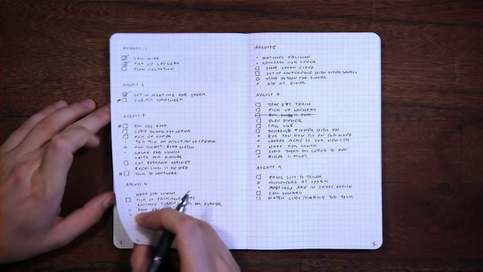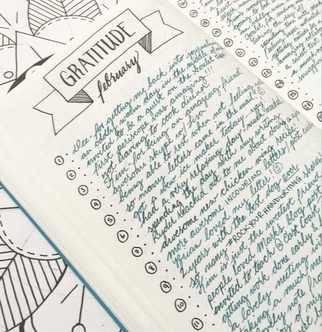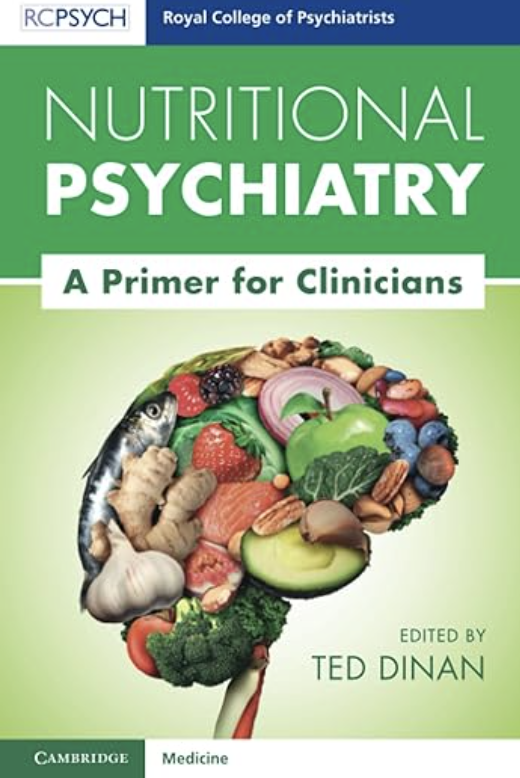|
Journaling can be an invaluable resource for therapy. When someone describes an unusually good (or bad) day in session, I often ask them to reflect on what was different. Answers of "I don't know." or "Nothing, I think." are supremely frustrating in that they leave a person feeling helpless, as though a good or bad day comes out of the blue or passes them by completely outside of their control. More often than not, there are concrete things someone did, thought, or felt that either contributed to a better day or perhaps kept a bad day or experience from "taking over" or becoming unmanageable. Take for example the few pounds we all may or may not have added over the holidays. We can be perplexed when we look at the scale now and wonder, "How did that happen?" But we also know that people who log everything that they eat or drink 1) tend to eat and drink more mindfully and healthily, and 2) can readily identify that pumpkin cheesecake or second helping that likely added to the scale come January. Journaling can provide that level of insight for your mental health. Identifying patterns can be empowering and can provide you with your own individual data on what works, and what doesn't, what contributes to a great week, and what behaviors, skills, and experiences help you nip anxiety or depression in the bud. This process can help you clarify thoughts and feelings and solve problems more effectively. Journaling can improve your body as well as your mind. University of Texas social psychologist and researcher, James Pennebaker has found that regular journaling strengthens immune cells (lymphocytes). A study published in Advances in Psychiatric Treatment noted improvements in both physical and psychological health in clinical and non-clinical groups after just 3-5 15-20 minute journaling sessions. Other research suggests that journaling offers not just emotional, but physical benefits to individuals battling terminal or life-threatening illnesses. Perhaps we see these benefits because, as Pennebaker suggests, writing about stressful events helps you come to terms with them and reduces the impact of these stressors on your physical health. Remind you of therapy? Journaling and therapy can beautifully complement one another. The work that you do journaling over the week can build on the momentum, insights, and positive changes you are developing in therapy. How to begin? When many people hear "journal," the embarrassing teenage diary tucked away in a sock drawer comes to mind. But a journal can be much more than a diary (or much less, if you like), and there as many ways to keep a journal as there are journal-ers. For those who don't fancy themselves writers, or who feel overwhelmed at where to begin, the Bullet Journal developed by Ryder Carroll offers a streamlined way of tracking daily activities, including mental health. What to journal? In addition to logging events and experiences, a journal can be used to track moods, how you feel physically (e.g., energy level, headaches), behaviors that can affect your mental and physical health (e.g., sleep, exercise, taking vitamins and medications), and self-care (e.g., socializing, meditation). Tracking can provide valuable data and trends to discuss in therapy. You may also find it useful to include post-therapy session notes (e.g., insights, reminders, topics to discuss or come back to next session). Adding space for a gratitude journal can provide time and space to reflect on positive thoughts, feelings, and experiences in a way that can actually help re-train your brain to more readily identify (rather than discount) positive experiences. Including self-care ideas for when you notice triggers or early signs of depression or anxiety can help you easily identify tried and true methods to change course or help manage those negative feelings before they become overwhelming. Here are some additional tips to get you started:
Make it yours. Your journal can be as minimalistic and straightforward or artistic and detailed as you want. Are you the type of person (this month) who delights in a To Do list? Or does a listing these tasks and obligations bring you additional stress? If so, you may find you are better served by a "Done" list. Find your own style and what works best for you. The beauty of making a journal your own is that it can change with you from week to week, and month to month. Build on what works for you, and leave what does not behind without guilt (recognizing each of these is progress in and of itself!). Finally, I'm personally a proponent of putting pen to paper. One of the benefits of a journal that you physically create yourself is that you have complete control in customizing it to fit your needs as opposed to having pre-printed pages that you don't love or use in a day planner or maintaining multiple tracking apps. That said, if a physical journal just feels too analog for your life, there are a number of apps out there that track habits, moods, and provide space for journaling. Just be aware of protecting your privacy and online presence if you choose a digital route. Happy journaling! Additional Journaling Resources: BulletJournal.com offers a videos, tips, and tutorials on how to start a bullet journal. Rachel Wilkerson Miller and Anna Borges at Buzzfeed offer a lighthearted and insightful collection of ways to use journaling to track and improve your mental health. Steven Stosney at Psychology Today, describes the research on the results of journaling and gives tips for reaping the benefits of journaling while avoiding the pitfalls. Comments are closed.
|
About the AuthorClinical psychologist Dr. Kristy Novinski contributes insights, book and film reviews, discussions of pop culture, and exploration of news and research in the field of psychology. What I'm Reading
Categories
All
|
Las Colinas Psychological Services, PLLC |
© 2023 Las Colinas Psychological Services, PLLC. All rights reserved.
|







 RSS Feed
RSS Feed

